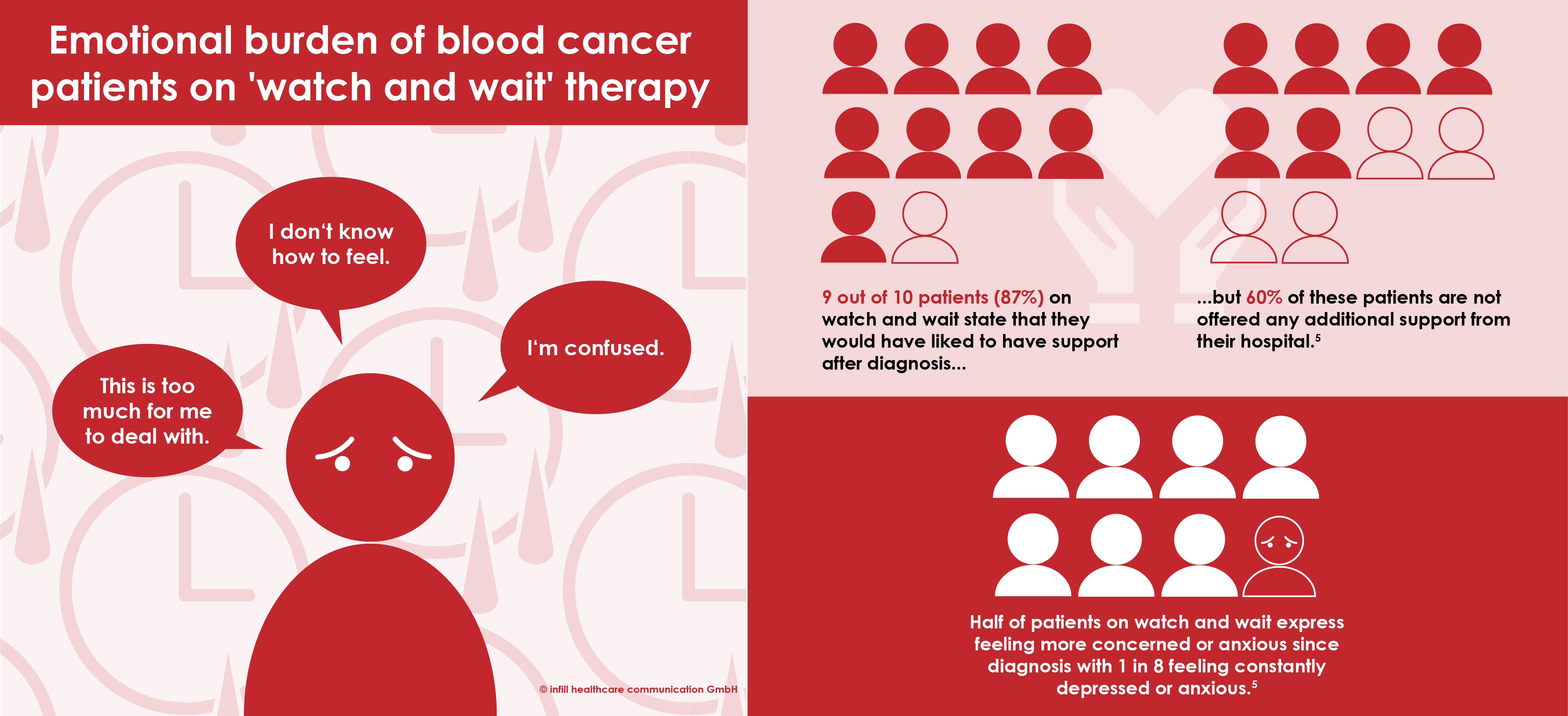Trying times: supporting blood cancer patients on watch and wait therapy
September is Blood Cancer Awareness month, and this year more than 320,000 individuals will be newly diagnosed with blood cancer across Europe.1 As ‘watch and wait’ becomes increasingly common in blood cancer treatment paradigms, many patients will find themselves with a uniquely challenging future. One in eight of all newly diagnosed patients in the UK alone will need to learn how to deal with their new normal: the reality of living with regular tests but no treatment.2,3
Not all blood cancer types require immediate treatment, and some never do. For example, many patients suffering from Europe’s 2nd most common blood cancer, chronic lymphocytic leukaemia (CLL), as well as patients with other slow-growing blood cancers, find themselves in this category.3,4 These patients often find themselves in a so-called ‘watch and wait’ programme. Also known as active monitoring or watchful waiting by physicians, patients are regularly monitored via blood tests. Treatment will only take place once the disease progresses to a point where the abnormal cells are at high enough levels to cause disease burden for the patient. But what about the emotional burden of living with cancer without being able to do something about it?
A glance at watch and wait support forums, often dubbed “watch and worry” by those going through it, gives an impression of just how huge a mental strain these people are challenged with.

Half of all patients on watch and wait in the UK described how they dealt with increased feelings of concern and anxiety since diagnosis and monitoring began, with 12.5% reporting constant feelings of depression or anxiety. Yet, 60% of all watch and wait patients were not offered any additional support from their hospital after diagnosis.5 It is not to say that HCPs are not aware of their patient’s needs, but many people on watch and wait face an average of 5 to 10 years before treatment.5 It is vital that the knowledge, awareness, and support for this challenge is readily available and consistently offered.
One way to develop emotionally sensitive content and resources for patients and their HCPs is to work with patient support groups and advocacy networks. This may help them to continue their reach and growth and increase awareness for those in need of information and support.
If you work in a field that requires both professional patient-targeted programmes and/or tailored data dissemination plans, please contact us as info@infill.com.
- https://ec.europa.eu/research-and-innovation/en/horizon-magazine/blood-cancer-diagnosis-when-mission-impossible-became-possible [accessed September 2022]
- https://bloodcancer.org.uk/news/blood-cancer-facts/ [accessed September 2022]
- https://bloodcancer.org.uk/understanding-blood-cancer/watch-wait/ [accessed September 2022]
- Sant et al. Incidence of hematologic malignancies in Europe by morphologic subtype: results of the HAEMACARE project. Blood. 2010;116(19):3724-3734. doi:1182/blood-2010-05-282632
- https://www.leukaemiacare.org.uk/our-campaigns/watch-wait-worry/ [accessed September 2022]








